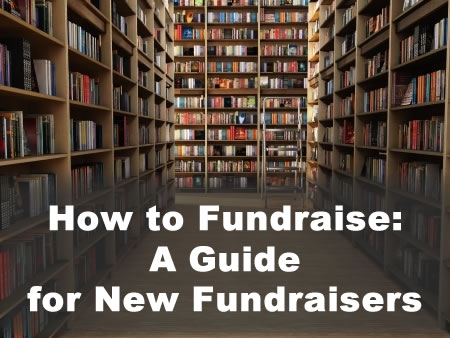New fundraisers have a lot to learn: not only does the job of a fundraiser require finding donors and soliciting gifts, but also building relationships, tracking finances, writing proposals, planning events, strategizing, and organizing volunteers. Hardly any other job demands such a broad range of skills!
For this ‘How to Fundraise’ guide, we’ve assembled the following list of essential articles that will increase your knowledge base and help guide you in your new role as fundraiser!
Once you’re finished here, we have more key topics ready for you to explore. Or you can simply browse through all articles or our fundraising checklists. As you’re reading and clicking, you will fill in gaps, increase your knowledge and gain new insights, so you can be successful in meeting your goals.
Before you get started, be sure to bookmark this page so you can refer back to it as needed. We will occasionally add to this guide in order to keep it up-to-date. So let’s get started!
For Planning:
Strategic planning doesn’t always come easy, but only well planned fundraising programs tend to succeed. Taking even just simple steps to plan before you start calling donors will exponentially increase your success.
- Set goals for your next fundraising season – easily, with this step-by-step checklist.
- You need to determine where and how you are going to look for funding. Try this quick quiz to figure out what your ideal fundraising mix will be to maximize your resources and raise as much as possible.
- This helpful article on donor segmentation will help you organize your pool of donors and prospects to save you time and increase the effectiveness in your fundraising strategy.
- Starting a new nonprofit? Read about 10 things you should know to make it a success!
For Writing:
Fundraisers tend to be great with people, but not everyone likes writing. Writing is necessary, however, to communicate effectively to donor prospects:
- Your writing should be crafted as part of a powerful story. Make sure your narrative is a “blockbuster” and not a “dud!”
- If you need to write a program proposal and have no idea where to start, try this how to guide for writing a winning proposal for grants or to organize your project to explain to major donors.
- Here is a good sample for putting together a cover letter for your proposal, one of the most critical components of either a personal or grant ask. For other type of sample letters such as donation requests click here.
- Content writing is key to online giving as well as to engaging donors in general. Read through these tips to improve your nonprofit website with blog articles that serve as donation magnets.
- Sample Fundraising Letters. Pinning down a donor appeal is tricky business, but you can copy from the best! Download our 5-star rated e-book with dozens of free-to-emulate letters for a wide array of charitable causes, from parent teacher associations to disaster relief.
- Learn more about the most important part of your pitch, your case statement.
For Research and Background:
The best fundraisers actively engage in learning and personal professional growth to learn new areas of the profession and broaden their perspectives.
- Why is fundraising important? That is the first question you should be able to answer if you are a fundraiser, but the reasons beyond “getting funds” are sometimes lost in the chaotic world in which most small nonprofits live.
- Corporate philanthropy is a difficult donor pool to wiggle into. Make sure you understand the basics of what corporations give and how before you ask them for funding.
- Marketing is a critical component to nonprofit fundraising, but it is also often ignored. Learn here about the newest trends in business marketing that can help your fundraising.
- Read the best books out there for fundraisers to spark your creativity and keep you on the edge.
For Great Events:
Nearly every nonprofit uses events, in some shape or form, to fundraise, or should think about doing so to engage new donors and prospects.
- What makes an event great as opposed to a normal event? Fitting it well to your mission and capacity, as well as attracting a good number of sponsors for starters.
- If you have no idea what kind of event to choose, browse through our super popular list of 100 different ideas!
For Improving Your Online Presence:
The Internet is a fantastic tool to engage with current and potential supporters!
- No matter what percentage mix you identify in your plan for online fundraising, you need to at minimum have a well-designed website with a stellar fundraising landing page.
- Social media – the basics of how, when, why, where to focus your efforts to maximize your impact.
- Visit our social media strategy checklist for ideas on how to create or structure your own.
- Visit the most popular online fundraising sites and pick your favorites for your upcoming crowdfunding and online appeals.
- And finally, be sure to connect your online and traditional marketing efforts.
For Building Capacity:
- Volunteers are necessary to your fundraising effort. Try these two checklists to set up a fundraising committee and
- Attract and engage volunteers to help you.
- Your fundraising is only successful if you properly “cultivate” – or build relationships – with your donors and prospects. Learn the steps not just to get donors, but to keep donors here.
- You need to stay organized with good software and administrative tracking tools. Understand how to pick the right program for the size and scope of your particular organization.
Fundraising requires a broad range of skills beyond asking for donations. With these resources you will boost your ability to write effectively, utilize the Web, plan, throw amazing events, and build capacity to make your fundraising group stronger throughout your entire organization!

